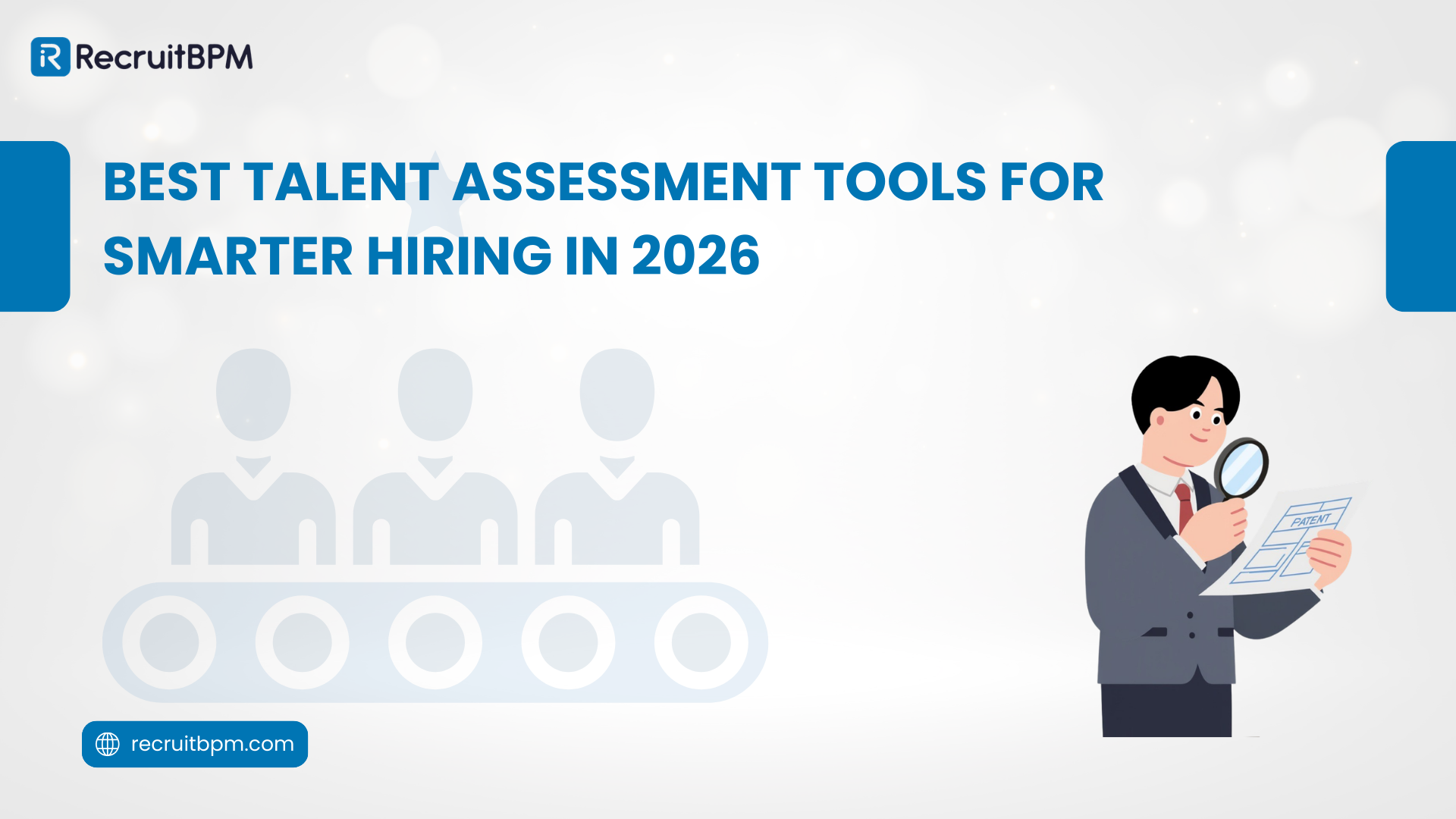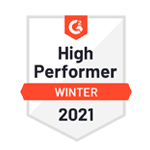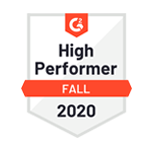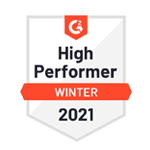Hiring has moved far beyond resumes and gut feelings. In a market defined by skills shortages, remote teams, and rising cost-per-hire, organizations that rely on traditional screening methods are falling behind. According to SHRM, companies that use structured talent assessments improve their quality of hire by up to 24%, while those that skip assessments entirely face a 50% higher average cost per hire due to increased turnover and poor productivity.
Talent assessment tools give hiring teams the ability to evaluate what actually matters: skills, cognitive ability, personality traits, and job fit using standardized, data-driven methods that reduce bias and accelerate decision-making. With 67% of organizations identifying increased AI usage as a top talent acquisition priority, the assessment landscape in 2026 is more advanced, more accessible, and more essential than ever.
This guide breaks down what talent assessment tools are, the major categories you need to understand, the top platforms worth evaluating, and a practical framework for choosing and implementing the right solution for your organization.
What Are Talent Assessment Tools and Why Do They Matter?
Talent assessment tools are digital platforms and methodologies designed to evaluate candidates through objective, standardized measurements. They go beyond what a resume or interview can reveal by testing real capabilities, technical skills, problem-solving ability, behavioral tendencies, and cultural alignment and producing data that predicts on-the-job performance.
Definition and How Modern Assessment Platforms Work
Modern assessment platforms combine multiple evaluation methods into a single workflow. A candidate might complete a cognitive reasoning test, followed by a role-specific skills challenge, and then a behavioral questionnaire, all within one integrated experience.
The platform scores each component against validated benchmarks, ranks candidates objectively, and delivers actionable insights to the hiring team. Many platforms now incorporate AI to analyze patterns from successful past hires, creating predictive models that forecast how likely a candidate is to succeed in a specific role.
The Shift From Resume-Based Hiring to Skills-First Evaluation
The traditional hiring model placed heavy emphasis on credentials, job titles, and years of experience. The problem is that none of these reliably predict performance. Skills-first hiring flips this model, prioritizing what candidates can actually do over where they have been. Research indicates that skills-based hiring can improve workforce diversity by 35% and expand the accessible talent pool by up to five times compared to credential-based methods.
This shift is being driven by both necessity, the talent market is too competitive to exclude capable candidates based on pedigree, and by the availability of assessment technology that makes skills-first evaluation practical at scale.
Key Statistics: How Assessments Impact Quality of Hire, Bias, and Retention?
The business case for talent assessments is well-documented. Companies using technology-based pre-hire assessments report a 39% lower employee turnover rate. AI-powered assessment tools, when properly designed with fairness algorithms, can reduce recruitment bias by up to 50%.
Organizations that combine cognitive and behavioral assessments with structured interviews achieve 82% better quality hires. And skills-based hiring approaches consistently reduce time-to-hire by 30% to 40% while improving retention by up to 35%. These are not marginal improvements; they represent a fundamental shift in hiring effectiveness.
Types of Talent Assessment Tools Every Recruiter Should Know
Not all assessments serve the same purpose. Understanding the major categories helps you build an evaluation strategy that matches your specific hiring needs rather than applying a one-size-fits-all approach.
Cognitive Ability and Aptitude Tests
Cognitive assessments measure intellectual capabilities, including logical reasoning, numerical analysis, verbal comprehension, and problem-solving speed. Research consistently identifies cognitive ability as one of the strongest single predictors of job performance across diverse roles, particularly those requiring complex decision-making or rapid learning. These tests are widely used for professional, managerial, and technical positions where analytical thinking is essential.
Personality and Behavioral Assessments
Behavioral assessments evaluate work style preferences, communication patterns, emotional intelligence, and personality traits that influence team dynamics and cultural fit. They help predict how candidates will respond to stress, collaborate with colleagues, and adapt to organizational norms. Tools in this category draw from established frameworks like the Big Five personality model, DISC profiles, and proprietary behavioral science methodologies. They are especially valuable for leadership roles, customer-facing positions, and team-dependent environments.
Technical and Skills-Based Testing Platforms
Technical assessments provide practical, hands-on evaluation of job-specific competencies. For software engineering roles, this means real coding challenges in actual programming environments. For sales positions, it might involve communication simulations or scenario-based exercises. For finance roles, spreadsheet modeling or data analysis tasks. These platforms measure what candidates can do, not what they claim they can do, making them among the most directly predictive assessment types available.
AI-Powered Predictive Analytics and Video Assessments
The newest generation of assessment tools leverages machine learning to go beyond individual test scores. Predictive analytics platforms analyze patterns from high-performing employees to build success profiles, then evaluate new candidates against those profiles. AI-powered video assessment tools analyze verbal and non-verbal communication during recorded interviews, evaluating factors like confidence, clarity, and engagement. While powerful, these tools require careful implementation with bias auditing and transparency to ensure fair, defensible outcomes.
Top 10 Talent Assessment Tools Compared
Rather than listing dozens of platforms with generic descriptions, here are the ten tools worth serious evaluation in 2026, organized by the hiring challenges they solve best.
Best All-Round Platforms
TestGorilla offers over 400 science-backed assessments covering technical skills, cognitive abilities, personality, and culture fit. Its drag-and-drop test builder lets recruiters combine multiple assessment types into custom evaluations tailored to specific roles. Pricing starts at approximately $142 per month for the core plan, with a free tier available. Best for organizations that need flexible, multi-skill assessments across a wide range of roles.
Criteria Corp focuses on scientifically validated cognitive aptitude, personality, and emotional intelligence testing. Its assessments are designed specifically to reduce hiring bias while predicting job performance with high reliability. The platform integrates with most major ATS systems and is particularly well-suited for organizations that prioritize evidence-based, legally defensible hiring decisions.
Mercer Mettl provides enterprise-grade talent assessments, including cognitive ability tests, personality questionnaires, technical evaluations, and AI-powered proctoring. With support for over 20 languages and robust anti-cheating features, it is designed for global organizations with complex, high-volume hiring needs. Pricing is custom-based on volume and assessment type.
Best for Technical Hiring
Codility specializes in practical coding assessments that simulate real engineering work rather than abstract puzzle problems. Its automated scoring system allows hiring managers to evaluate technical submissions without needing deep coding expertise themselves. Pricing is typically offered as custom enterprise pricing, with plans available for smaller teams.
HackerRank provides coding challenges, technical simulations, and real-world programming assessments across dozens of languages. It is widely used by IT companies, SaaS firms, and engineering teams to evaluate developers on actual problem-solving ability. The platform also supports technical interview hosting with collaborative code editors.
iMocha offers AI-powered skills assessments covering over 3,000 skills across IT, finance, sales, and marketing. Its massive test library and skill gap analysis capabilities make it valuable for both hiring and internal workforce development. Pricing starts at approximately $150 per month, varying based on features and scale.
Best for Behavioral and Cultural Fit
Predictive Index uses over 60 years of behavioral science to assess how candidates think, work, and collaborate. It measures four key behavioral factors: dominance, extraversion, patience, and formality, and provides hiring teams with actionable insights for predicting workplace performance and team dynamics.
Pymetrics takes a neuroscience-based approach, using game-based assessments to evaluate cognitive and emotional traits. Rather than simply scoring candidates, Pymetrics matches them to roles where they are most likely to succeed, reducing turnover and improving job satisfaction. It is particularly strong for organizations focused on diversity and bias reduction.
Best for High-Volume Hiring
Harver provides predictive talent assessments specifically designed for volume hiring in customer service, retail, hospitality, and logistics. Its realistic job simulations and automated screening workflows help large organizations process thousands of candidates efficiently while maintaining assessment quality.
HireVue combines AI-powered video interviewing with game-based and technical assessments. Its platform evaluates soft skills, problem-solving abilities, and communication through innovative methods, making it especially effective for enterprise organizations with high-volume, multi-role hiring needs.
How to Choose the Right Talent Assessment Tool for Your Organization
With dozens of platforms available, the selection process itself can become a bottleneck. A structured approach prevents analysis paralysis and ensures you invest in a tool that actually solves your specific challenges.
Map Assessment Types to Your Specific Hiring Needs
Start by identifying the roles you hire for most frequently and the competencies that most reliably predict success in those roles. Technical positions demand skills-based testing platforms. Leadership and management roles benefit from behavioral and personality assessments. High-volume entry-level hiring requires automated screening with situational judgment tests. Match the assessment category to the role before evaluating individual vendors.
Evaluate Integration With Your ATS and HR Tech Stack
A powerful assessment tool that does not integrate with your applicant tracking system creates data silos and workflow disruptions that offset its benefits. Prioritize platforms that offer native integrations or robust API connections with your existing HR technology stack. The goal is a seamless candidate experience where assessment invitations, completions, and results flow automatically within your existing hiring workflow.
Budget, Pricing Models, and ROI Calculation
Assessment tool pricing ranges dramatically from free tiers and $19-per-month starter plans to custom enterprise pricing running into thousands monthly. Calculate potential ROI by factoring in reduced time-to-hire, improved quality of hire, decreased early turnover, and the cost of bad hires avoided. Organizations typically report 200% or greater ROI from well-implemented assessment programs. Even modest improvements in retention can justify significant tool investment when you consider that replacing a single employee costs three to four times their annual salary.
Compliance, Bias Monitoring, and Legal Considerations
Any assessment used in hiring must comply with equal employment opportunity regulations and data privacy requirements. Verify that the tools you evaluate include built-in bias monitoring, adverse impact analysis, and transparent scoring methodologies. Scientifically validated assessments with documented fairness testing provide the strongest legal defensibility. This is not optional; it is a regulatory and ethical requirement that protects both your organization and your candidates.
How Does Candidate Experience Affect Assessment Effectiveness?
The most scientifically validated assessment in the world delivers zero value if candidates abandon it halfway through. Candidate experience is not a secondary concern it directly determines whether your assessment program succeeds or fails.
Why Mobile-Friendly, Time-Conscious Assessments Win
A significant portion of candidates access career opportunities and complete applications on mobile devices. Assessment platforms that are not mobile-optimized create immediate friction and drive drop-offs. Similarly, excessively long assessments discourage completion. The most effective programs balance evaluation rigor with reasonable time expectations, typically 20 to 45 minutes for a comprehensive assessment battery.
The Role of Your Career Portal in the Assessment Journey
Candidates do not experience your assessment tool in isolation. They experience it as part of a broader journey that begins with your career page, moves through the application process, and then transitions into the assessment stage. If your career portal is slow, confusing, or poorly designed, candidates form negative impressions before they ever reach the assessment. A seamless, professionally designed digital experience sets the tone and directly influences completion rates and candidate perception.
Balancing Rigor With Engagement to Reduce Drop-Off
The best assessment platforms incorporate interactive elements, scenario-based questions, game-like interfaces, and real-world simulations that keep candidates engaged while still collecting meaningful data. Dry, text-heavy questionnaires with no feedback or progress indicators create fatigue and disengagement. Choose tools that treat the assessment itself as a positive brand touchpoint rather than a bureaucratic hurdle.
Implementing Talent Assessments Best Practices and Common Mistakes
Selecting the right tool is only the first step. Implementation determines whether you realize the promised value or end up with expensive shelfware.
Start With a Pilot Program on High-Impact Roles
Rather than rolling out assessments across every role simultaneously, begin with a focused pilot. Choose two or three high-volume or high-impact roles where assessment results can be clearly measured against hiring outcomes. This approach generates concrete data to justify broader adoption while allowing your team to learn and refine the process before scaling.
Train Your Hiring Team to Interpret Results Correctly
Assessment scores should inform decisions, not dictate them. Recruiters and hiring managers need to understand what different scores mean in context, how to combine assessment data with interview impressions, and when to weight certain factors more heavily than others. Without proper training, teams either over-rely on scores or ignore them entirely, both of which undermine the assessment program’s value.
Measure What Matters: Key Metrics for Assessment ROI
Track cost-per-hire reductions, time-to-fill improvements, new hire performance ratings, retention rates at six and twelve months, and hiring manager satisfaction. Compare these metrics for assessment-based hires versus those hired through traditional methods. Regular measurement creates a feedback loop that enables continuous optimization and provides the evidence needed to secure ongoing investment from leadership.
The Future of Talent Assessment AI, Ethics, and 2026 Trends
The assessment landscape is evolving rapidly, and organizations that stay ahead of these shifts will have a significant competitive advantage in talent acquisition.
Generative AI for Custom Assessment Creation
Generative AI is transforming how assessments are built. Instead of relying solely on pre-built test libraries, organizations can now use AI to generate role-specific questions, create realistic job simulations, and personalize assessment experiences based on candidate profiles and role requirements. This dramatically reduces assessment development time and cost while improving relevance and engagement.
Skills-First Hiring Mandates and Credential-Free Evaluation
The skills-first movement is accelerating. A growing number of organizations, including major enterprises and government employers, are formally removing degree requirements from job postings and replacing them with skills-based evaluation criteria. Assessment tools that can validate competencies without relying on educational credentials are becoming essential infrastructure for this transition.
Ethical AI, Bias Auditing, and Regulatory Compliance
As AI becomes more embedded in hiring decisions, scrutiny around fairness, transparency, and accountability is intensifying. The most forward-thinking assessment providers are investing in enhanced bias auditing capabilities, explainable AI features that show how scoring decisions are made, and compliance frameworks aligned with emerging regulations. Organizations that adopt tools with strong ethical AI practices now will be best positioned as regulatory requirements continue to tighten.
Final Checklist: Choosing and Deploying Your Assessment Stack
Talent assessment tools are no longer a nice-to-have. In 2026, they are foundational to competitive hiring, reducing bias, accelerating decisions, improving retention, and elevating the quality of every hire.
Quick-Reference Buyer’s Checklist
Before committing to any platform, confirm it meets these criteria: scientific validation and documented fairness testing, native integration with your ATS, mobile-friendly candidate experience, customizable assessments mapped to your specific roles, transparent pricing with clear ROI metrics, built-in bias monitoring and compliance reporting, and reasonable assessment durations that respect candidate time.
Next Steps to Audit and Upgrade Your Hiring Process
Begin with an honest audit of your current hiring outcomes. Calculate your cost-per-hire, track your quality-of-hire metrics, and identify where in the process candidates drop off or bad hires slip through. Use those findings to select the assessment categories that will have the highest impact, then pilot one or two tools on your most critical roles. Let the data guide your expansion from there.

















